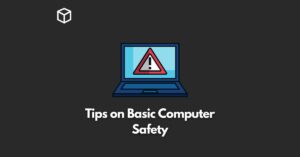Git is a widely-used and powerful tool for version control that allows developers to track and manage changes to their code.
It enables teams to collaborate on projects, and also helps in maintaining different versions of the code, which can be useful in many scenarios like trying out new features, and tracking bugs.
In this article, we will walk you through the process of installing Git on Ubuntu – a popular Linux distribution that is widely used by developers.
Before we begin, it’s essential to know that you’ll need to have Ubuntu installed on your system and have administrative privileges to install Git.
Installing Git on Ubuntu
Installing Git on Ubuntu is a straightforward process that can be accomplished using the apt-get package manager. To install Git, open a terminal window and enter the following command:
sudo apt-get install git
This command will install Git and any necessary dependencies required for its proper functioning.
It is worth noting that this command will install the latest version of Git available in the package repository.
Verifying the installation
Once the installation is complete, it’s essential to verify that Git is installed correctly. To check the version of Git, run the following command in your terminal:
<code>git --version </code>
This command will display the version of Git that is currently installed on your system.
Configuring Git
In addition to installing Git, it’s also crucial to configure it with your user name and email address.
This is important because it allows Git to properly attribute commits to the correct person.
To configure Git, you can run the following commands in your terminal:
git config --global user.name "Your Name" git config --global user.email "[email protected]"
Conclusion
In conclusion, installing Git on Ubuntu is a simple process that can be accomplished using the apt-get package manager.
Once Git is installed, it’s essential to verify the installation and configure Git with your user name and email address.
We encourage you to start using Git for version control and take advantage of its powerful features.
Further, you can explore further resources to learn more about Git and its usage.
With Git, you can easily keep track of your code, collaborate with your team, and maintain different versions of your codebase.




